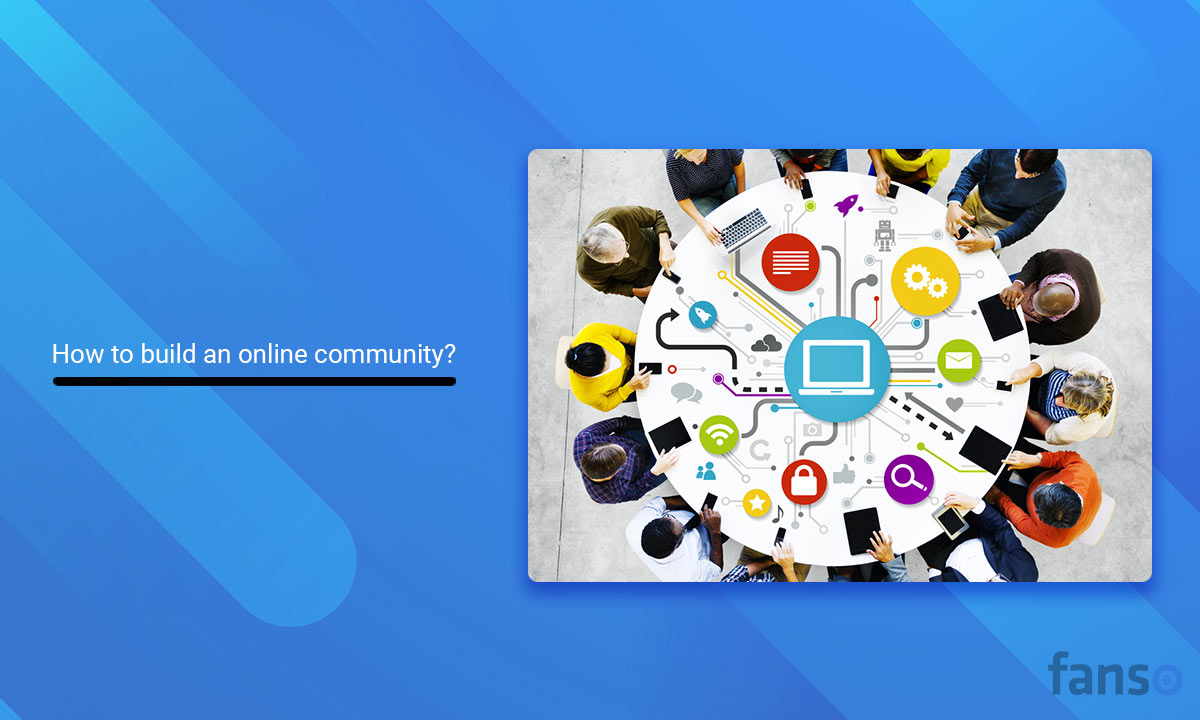One of the basic human needs is — a sense of belonging. This emotion has traversed in the digital realm as online communities. Whether you want to share knowledge, monetize from niche content or streamline fandom, online communities are a powerful medium!
From forums to live interactions and AI-powered communities, digital communities have been through a transformational journey!
From figuring out your bigger purpose to choosing the right platform and grabbing the spotlight, we’ve got you covered! We’ll walk you through the step-by-step guide on how to build an online community.
So, are you ready to build a thriving community?
Table of Contents
- 1 What is an Online Community?
- 2 What are the Essentials to Build an Online Community?
- 3 How to Build an Online Community: 5 Strategic Steps
- 4 Benefits of Creating an Online Community
- 5 Types of Online Community
- 6 Tips to Grow Your Online Community
- 7 Stellar Online Communities Ruling the Internet (Examples)
- 8 Final Thoughts
- 9 FAQ-Related to How to Build an Online Community
What is an Online Community?
An online community is a group of similar individuals bonding on a shared interest, reason, or a purpose. Unlike traditional communities, all the communication happens virtually. So, members either learn, seek solutions, or draw authentic connections!
The benefits depend on the community type. It’s definitely a win-win for both businesses and the audience! While the individual gains are obvious, businesses and brands can nurture deep connections with their audience.
For example, brands promote their products and services through a community. They can share product updates, encourage better customer interactions, and entice with discounts. The result? Customers are emotionally invested. And this builds customer loyalty and trust in the long run.
At the back end, communities are steered by rules and guidelines that align with their purpose and business goals. People often associate communities with social media groups. But, a community could exist on third-party platforms, your website, or discussion forums like Discord.
What are the Essentials to Build an Online Community?
Whatever your end goal, starting an online community requires a few essentials!
1. Find the Purpose of Your Online Community
A strong purpose or intent drives the most successful online communities. Finding the motivation is the first step to building a resounding community. Establish a clear objective on how your community will help your audience.
For example, a music-based community like Bandcamp’s purpose is to connect fans with their favourite artists.
2. Define Your Goals
Next, you need to split your higher purpose into achievable goals. These could be things like higher website traffic, more engagement, or building customer loyalty.
You could even have a more specific goal, such as collecting product feedback or reducing tickets.
When you don’t set precise goals, getting lost in the maze is easy!
3. Create an Ideal Member Persona
Now, you have figured out the why and what. Next, let’s understand your target audience!
Delve deeper into their demographics, psychographics, pain points, and behaviours. Use customer surveys, social media analytics, and interviews.
4. Structure for Online Community
Online communities can be structured in several ways. Either based on your intent, culture, or member size.
Membership communities, social media groups, forums, Q&A-based communities etc., are few online communities.
Forums are great for discussions. Social media groups make brands. Learning communities help in sharing knowledge and learning skills.
While membership communities like Patreon, Ko-Fi, and Buy Me a Coffee are for fan engagement.
⚡Related Reads: How to Start a Membership Site
How to Build an Online Community: 5 Strategic Steps
Let’s walk you through this step-by-step guide on how to build an online community!
1. Define the Monetization Streams for Your Community
Now, it’s time you start monetizing from your loyal fan base!
-
A Subscription Plan for Community Access
The most common way to earn is tiered subscriptions. You can create a perk-based subscription tier with different levels of access. This could include exclusive content access, events, social community access, discounts, etc.
For example, True Crime Obsessed is a popular podcast on Patreon that recaps the top crime documentaries in a humorous way. Here’s how their subscription tier looks:
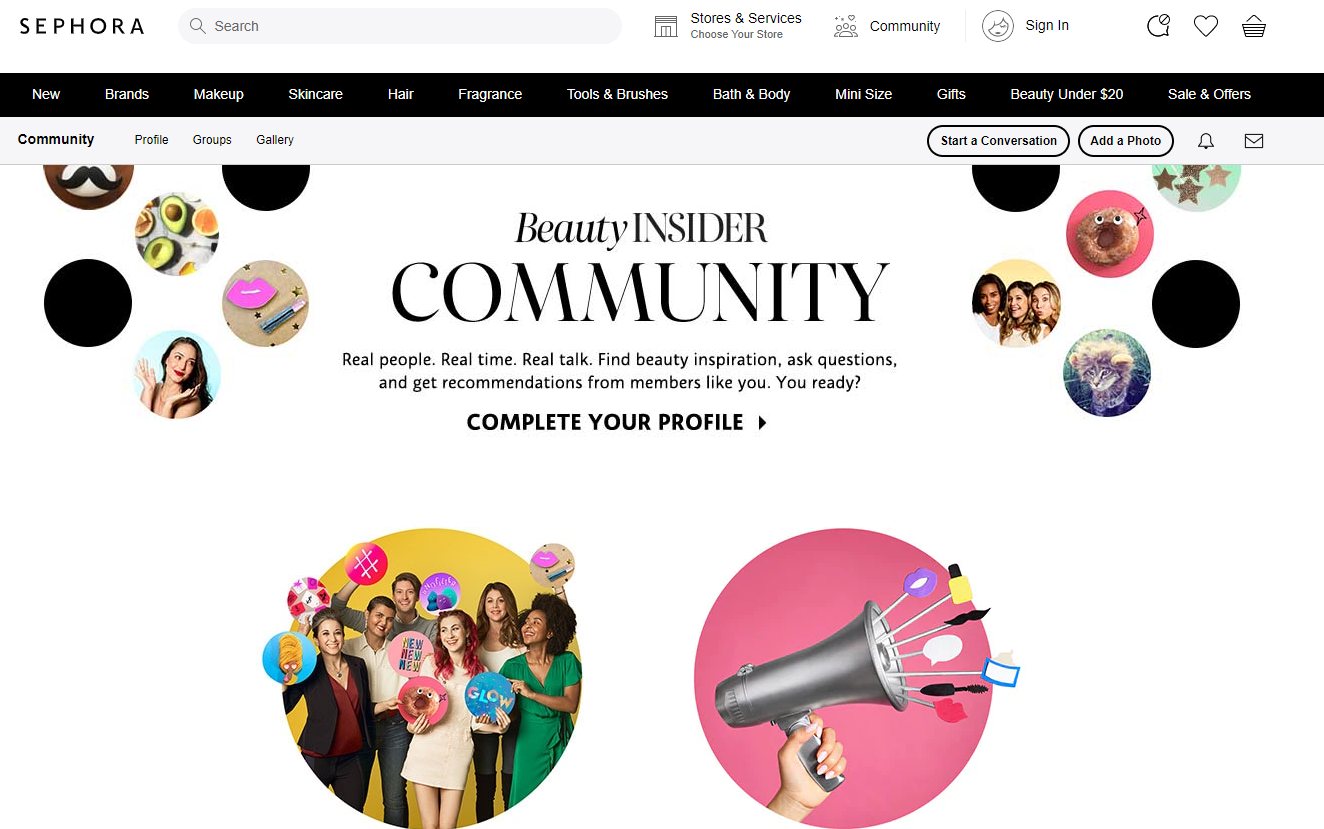
-
Sell Digital Products
Planning to start a niche community, like music, food, or gaming? Selling digital content could pump in more income. Stock images, photo bundles, videos, podcasts, ebooks, courses, etc., are profitable options. Offer attractive discounts and rewards to encourage purchases.
💡Are you into fitness? Here’s our creator’s guide on how to sell fitness programs online.
-
Create Merchandise Store
If you have a significant fan following, set up a brand merchandise store. Fans would go that extra mile to get a bespoke branded product! Design the products that align with your brand’s color, images, and logos.
The joy of creating your merchandised t-shirt, hoodie, sweatshirt, cup, or bag is unparalleled.
-
Gated Live Events and Workshops
Real-time live and virtual events forge genuine fan-creator interactions. Fans can catch up with a live performance, virtual party, behind-the-scenes content, or a simple Q&A session. Similarly, members can have an enriching learning experience through workshops, meetups, or webinars.
Ticket sales of these live experiences can add up to your platform revenue!
-
Exclusive Content
Exclusive content fuels your online communities. Whether it’s a themed photo set, sneak peek video, a how-to-guide or a blog posts, it provides your members worthy experience! Try creating content with value or unique experiences and that’s worth splurging!
Look for premium content ideas. Create an in-depth course, tutorial videos, or a masterclass. Also, you can lock the content in a paywall to earn beyond subscriptions!
-
Affiliate Marketing
A strategic way of earning money is: niche-relevant brand affiliates! So, how to make it work?
Collaborate with a brand relevant to your audience! Promote their unique affiliate links in your community or even share discount codes. Clink! Clink! You earned a commission for every sale!
-
Donations and Crowdfunding
Donations and crowdfunding might seem too pushy! But, if your community is unified for a worthy cause or mission, this could be a major income source. You would be surprised about how supportive community members are!
Clearly explain why you need the funds. Include convenient payment methods in your community for easier transactions. For example, crypto payments are a viable option for faster transactions and access.
Patreon, Ko-Fi, and Kickstarter are popular crowdfunding communities. Here, fans can financially support creator projects through one-time donations or subscriptions.
2. Choose the Right Online Platform
Here’s one of the most essential steps in how to build an online community guide.
Vibrant communities offer dynamic experiences! It’s not just about sending mass invites, posting frequently, and engaging your audience.
But, it’s about sharing knowledge, skills, and building meaningful connections. This says, why do you need a powerful tool to make the magic happen!
Relying on social platforms like Facebook, LinkedIn, and X (formerly Twitter) is a tricky bet! There’s a risk of being overshadowed by the social algorithm and platform updates. So, your visibility is at risk!
Take a deep dive into your audience’s expectations with these questions:
- Is my community free, paid, or hybrid?
- Are you looking for synchronous or asynchronous communication?
- How do you plan to monetize your community?
- Does your audience have a preference for exclusive content like subscriptions, PPVs, or custom requests?
- Are they looking for live events, webinars or discussions?
- What kind of integrations and tools would I integrate into the platform?
- Would you engage & reward your audience with quizzes, assignments, or certificates?
Some platforms to create an online community include:
-
- Public social media groups like Facebook, LinkedIn, X, discussion-based Reddit
- Self-hosted community platforms like Circle, Mighty Networks, Slack, Discord
- Your website and community plugin (Use plugins like BuddyPress, MemberPress, bbPress)
- Open – source communities like Forem, Discourse, Nodebb, Vanilla Forum
- Community Marketplace Clone scripts like Fanso.io (Cost-effective approach )
- Custom Development
Consider the purpose, scalability, target audience, and engagement factors.
Looking for a befitting community marketplace for your creator tribe? Fanso.io has everything you need to build a membership-community marketplace. It lets you bring subscriptions, live-streaming, premium offerings, merchandise store, live chatting, all at one place!
You can build a website like OnlyFans, Patreon, LetterDrop, Playbook, or Cameo. The highly customizable script has something for everyone! Whether you want to nurture a writer’s tribe, musicians, or gaming community, customize the scripts the way you need!
3. Set up Your Community
A successful community requires a lot of thought and effort. To set up your community, you need to be familiar with basic functionalities of the platform.
Next, create an entire environment where your members thrive. There are multiple aspects involved here!
For ease, we divide the tasks into three spheres: design, manage, and engage.
Design Your Community
- Choose Your Community Aesthetics
Branding extends beyond the mere aesthetics! But, you can’t deny its influence on defining the community experience. From your profile picture, cover photo to color palette, everything speaks for your community. So, choose wisely!
Source: Bettermode
Sephora Beauty Insider Community has quite a vibrant design aligning the beauty & wellness niche.
- Community Description
A community description captures the essence of your platform. Write a short, memorable & even quirky one. One that aligns with your business goals. It should clearly convey what the people can do in the community.
- Membership Questions
Create a set of membership questions for those joining the platform:
- What do you expect to gain from the community?
- Do you have any specific niche-related interests, passions, or goals?
- How did you hear about our community?
- Are you looking forward to any events or experiences from the community?
- What’s the most important aspect you like about our community
Manage Your Community
- Create an Organizational Structure
Decide the roles of community members: admin, moderator, super-members. The moderator and admin ensures community rules are followed. Decide roles and permissions of each member.
For example, moderator flags and filters relevant content, enables or disables comment for certain posts, etc. Group admin approves grants and revokes access roles, pins posts.
- Define Rules & Set Boundaries
Members thrive in healthy community environments. Communities are digital spaces for sharing your ideas & knowledge. However, to keep every member on the same page, laying out rules and consequences of violation is crucial.
The community guidelines must cover topics such as respectful communication, relevant topics of discussion, prohibition of spam, and privacy policies.
- Make a crisis plan
Last but not least, be prepared for the worst! Create an action plan for dire consequences, such as someone posted illegal content. Imagine all the possible scenarios and a plan for each scenario.
4. Engage Your Community
It’s time to get to work and deliver what you promised! Content that engages and provides value. And this is often what communities struggle with!
Here’s a quick series of content that keeps your members on the edge:
-
Welcome message
Craft a personalized message making your members super-important!
An effective strategy: spill the beans on what members can expect from the community. Segment the audience and send multiple messages.
-
Exclusive content
Private and closed communities win over audiences with their exclusivity! Provide exclusive expert interviews, industry reports, and in-depth articles that are not freely available to the public.
-
Events
Besides exclusive content, members can create hype and excitement by throwing in some live events! Whether it’s an insightful webinar, a virtual party, it’s sure to leave your fans engaged.
-
Contests & Challenges
Dealing with member burnout, low engagement, or growing pains? Host an intriguing contest or challenge that powers up your members. Think of a fitness challenge, writing series contest, or something more inclined to your niche!
-
Rewards
If you want to foster active participation and incentivize members, rewards are a game-changer! Choose tangible or intangible rewards!
Tangible rewards include freebies, early-bird discounts or offers. The intangible incentives are badges, leaderboards, points, etc. Value positive enforcement by rewarding members when they participate in discussions, bring in a valuable post, win a contest, etc.
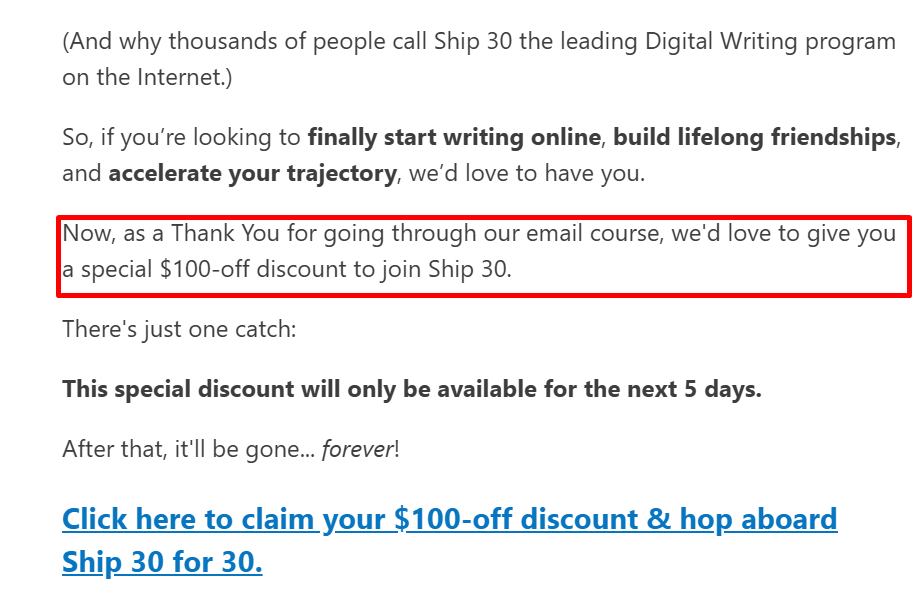
5. Bring Your Community to the Limelight
Your community is alive, but you need to keep the momentum going! It’s time people know about your community!
Find the ideal marketing channels where your ideal members hang out. Then, actively promote on these channels,
-
Social Media Marketing
Facebook groups, Instagram stories, X chats, or LinkedIn Groups? Which works best for your audience?
Next, share content, create discussion threads, and post group invitations. Experiment with different content tones: LinkedIn for industry-specific discussions, Instagram stories to brew visual stories, etc.
-
Community-Specific Newsletter
If you’re struggling with lead conversions, start a community newsletter. This will nurture leads and bring in new conversions. Share brand stories, community updates, interesting insights and attractive offers.
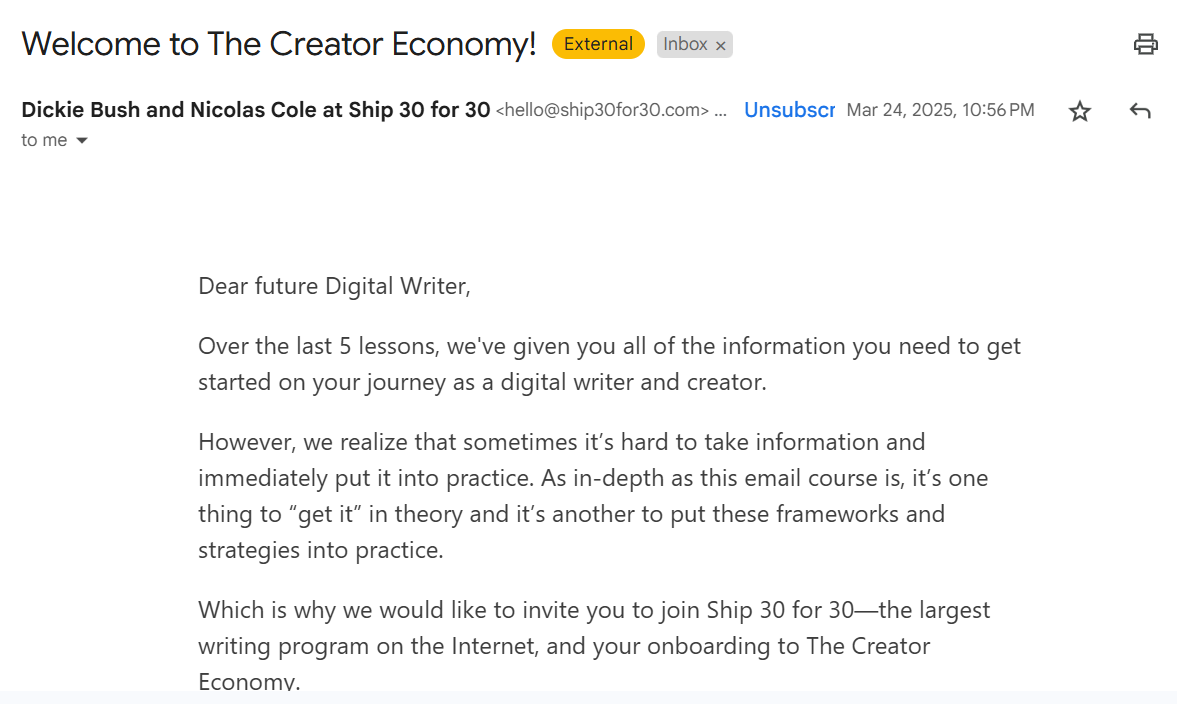
-
Encourage Your Achievers
Reward your community’s heroes—the enthusiastic members! Highlight them as success stories in newsletters and offer exclusive perks!
-
Run a Referral Program
A referral program is a no-fail strategy! Your loyal tribe is your best brand advocate. Create an attractive member referral with rewards like discounts, coupons, or exclusive content.
-
Targeted Ads & Sponsorships
You might think advertising and sponsorships are way too much! But, promoting your community to a specific audience works like charm. Collaborate with other businesses and cross-promote each other to increase visibility.
Well, that was our detailed guide on how to build an online community!
Benefits of Creating an Online Community
The benefits depend on your niche, purpose, platform, and target audience.
Below, are some common advantages to look up to:
-
Build Genuine Connections
Looking for meaningful ways to connect with your audience? Don’t underestimate the power of online communities. Whether you’re setting up a learning community or a celebrity-based community, they are excellent for relationship building. They are digital spaces to share, interact, and entertain!
-
Diversify Your Revenue
Communities have evolved as a means to empower businesses. Monetizing from online communities is no longer a far-fetched dream! This transforming narrative rings true for the creator economy! Creators have more than just brand deals and collaborations to earn revenue!
Platforms like Patreon offer space to monetize from livestreams, merchandise and digital products.
-
Dealing with a Fuzzy Social Media Algorithm
Social media is a powerful tool to carve your brand identity. But, creators and businesses have to rely on the whims and fancies of social media algorithms.
Some social accounts might hit their stroke of luck overnight. While some might find it hard to “beat the algorithms.”
Unlike social media, communities aren’t governed by these lines of code. They value diverse opinions and help to easily build your audience.
-
Building Trust & Credibility
Online communities are essentially made by sharing expertise, transparency, and delivering value. When you constantly offer value and authentic experiences, you leave a lasting impression.
-
Boost Engagement
You can host live events, webinars, or educate members through workshops!
Learning communities might be inclined to share resources like PDFs, slides, ebooks, and articles. Other communities might be focused to provide member experiences like live performances, merch stores, or digital products, etc.
Types of Online Community
Community members are held together by a common interest. But, there are different types of online communities catering to specific member needs. Online communities are categorized based on goals, values, structure, values, etc.
Let’s take a look at some popular types of online communities!
-
Brand Community
As the name suggests, brand communities focus on a single brand or business. They strengthen the relationship between the brand and the audience. These social communities find ways to connect with their audience.
For example, Airbnb’s Community Center is a place where hosts and guests share their stories and experiences!
-
Learning Community
Learning communities are dedicated to a specific skill, topic or niche. In this collaborative space, learners can ask questions, get feedback or even discuss ideas.
For example, Duolingo Forums is a community of language learning platforms. Here, members can ask questions, share expertise, and refurbish skills.
-
Support Community
Stuck with an issue or challenge? You can find answers in the related support community. These communities address common challenges and problems that users encounter.
From something technical like fixing a hardware issue to personal as parenthood challenges, there’s a group for everything.
For example, HP support community provides product queries and tips for users.
-
Network Community
These online communities connect professionals, customers, or peers in an industry.
Peers can connect with industry leaders and land job offers, collaborations, or effective guidance! You can start a non-professional community bound by a hobby, passion, or interest.
For example, Github discussions is a collaborative space for developers.
-
Fan Community
With the evolving trend of fandom culture, fan communities are a thing. Whether you’re a K-pop fan or an avid Harry Porter fan, you can nurture your own tribe! It’s never too late to start your own fanclub community to build a loyal fan base!
For example, K-Pop Discord is a hub for fans to share updates and connect real time.
Tips to Grow Your Online Community
While running a community is rewarding, it can get chaotic! Whether it’s the off-topic discussions or the uninvited trolls, things can go uphill!
Enhance your community with these tips:
1. Define KPI Metrics
Look for metrics such as engagement, traffic, and active members. These indicate the health of your online community, and you can make tweaks to improve performance.
2. Encourage Active Participation and Networking
Initially, group members might be hesitant to talk. Community managers can get involved and initiate discussion topics and monthly themes.
3. Effective Member Onboarding System
Welcome new members with personalized onboarding. Use tailored welcome posts and a quick walkthrough of the community platform.
4. Filtering Tools & Trained Moderators
Ensure community managers are skilled in brand communication, writing, and content moderation tools.
5. Gauge the Community Management Cost
Evaluate the cost of managing the community. This helps you avoid out-of-the-blue expenses and additional costs in the future.
Stellar Online Communities Ruling the Internet (Examples)
Looking for inspiration for building your own community? Let’s explore some amazing online communities that are empowering their tribe and etching stories out there!
It’s challenging to fit all the communities into a box like community members! Some might serve dual purposes. We have picked up examples based on community type.
Airbnb (Brand Community)
Airbnb is a leading online community. And has scripted a new narrative with over one million followers. It’s an exclusive group for hosts and guests. Conversations, stories, and experiences define this wanderlust tribe.
Whether it’s listing advice, attracting bookings, or zeroing in on the amenities, it’s a go-to resource! The community includes a resource hub, a help centre, and local host clubs.
Hosts can ask questions, discover new ideas, and find co-hosts. Besides, they can connect with local meet ups, forums, and networking events.
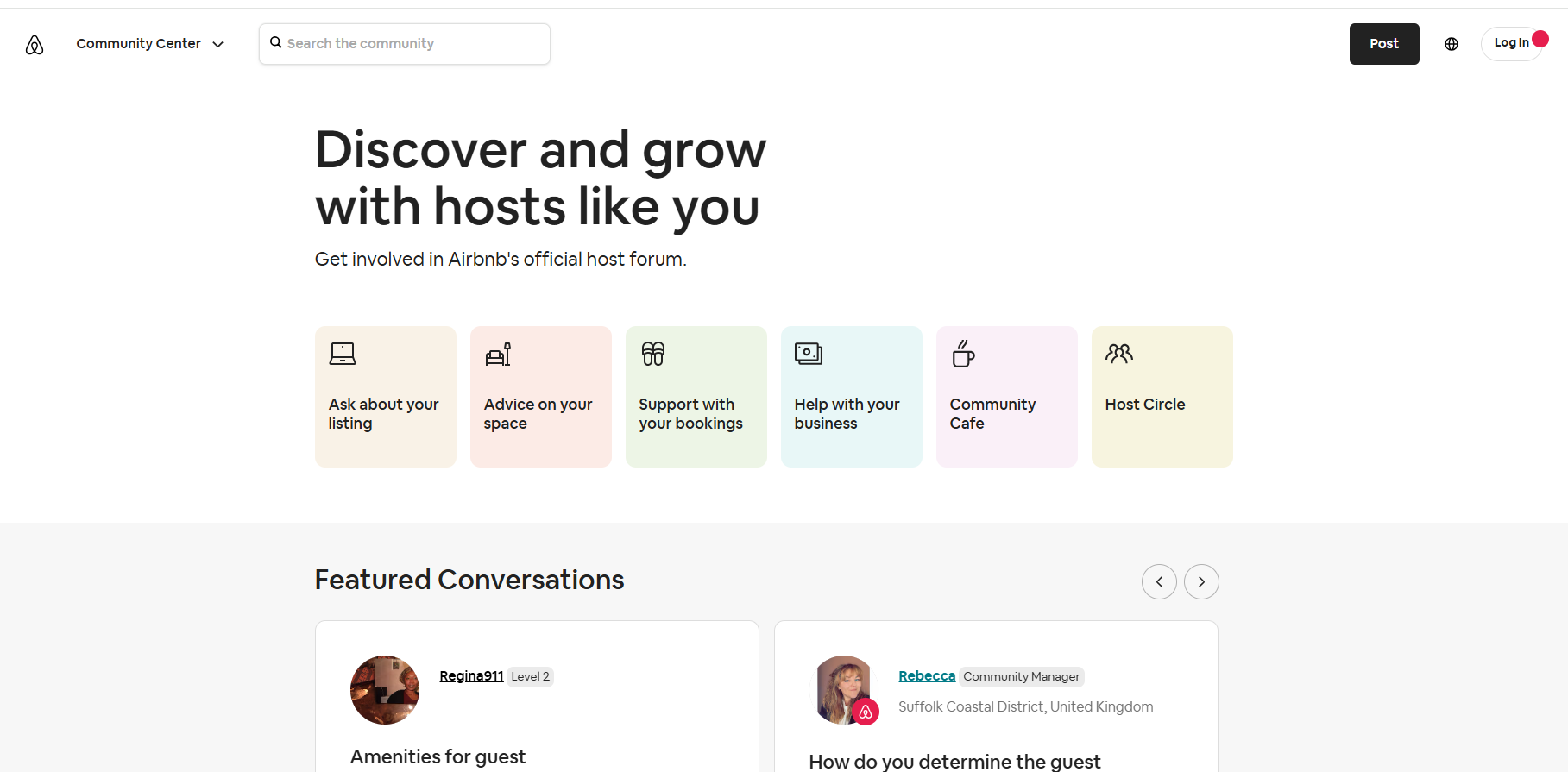
Amanda Palmer(Fandom Community)
Some communities bleed loyalty! Amanda Palmer’s community is one such fandom community.
It is a closed group of 23,241 patrons brought together by this charismatic songwriter! Palmer’s crowdfunding efforts began in 2015. Her community members pay a monthly pledge of their choice for funding her albums, songs, videos, podcasts, etc.
From her exclusive collections to “The Art of Asking Everything” podcast, her channel is a treasure trove for music lovers. She has pioneered community funding and carved her own space in Patreon.
The star uses these funds to pay her designers, editors, drummers, and podcast producers. She offers a tiered membership: $5/ month, $15/month, and $40/month. High-level tiers offer access to exclusives, such as workshops, discussion forums,special events, etc.
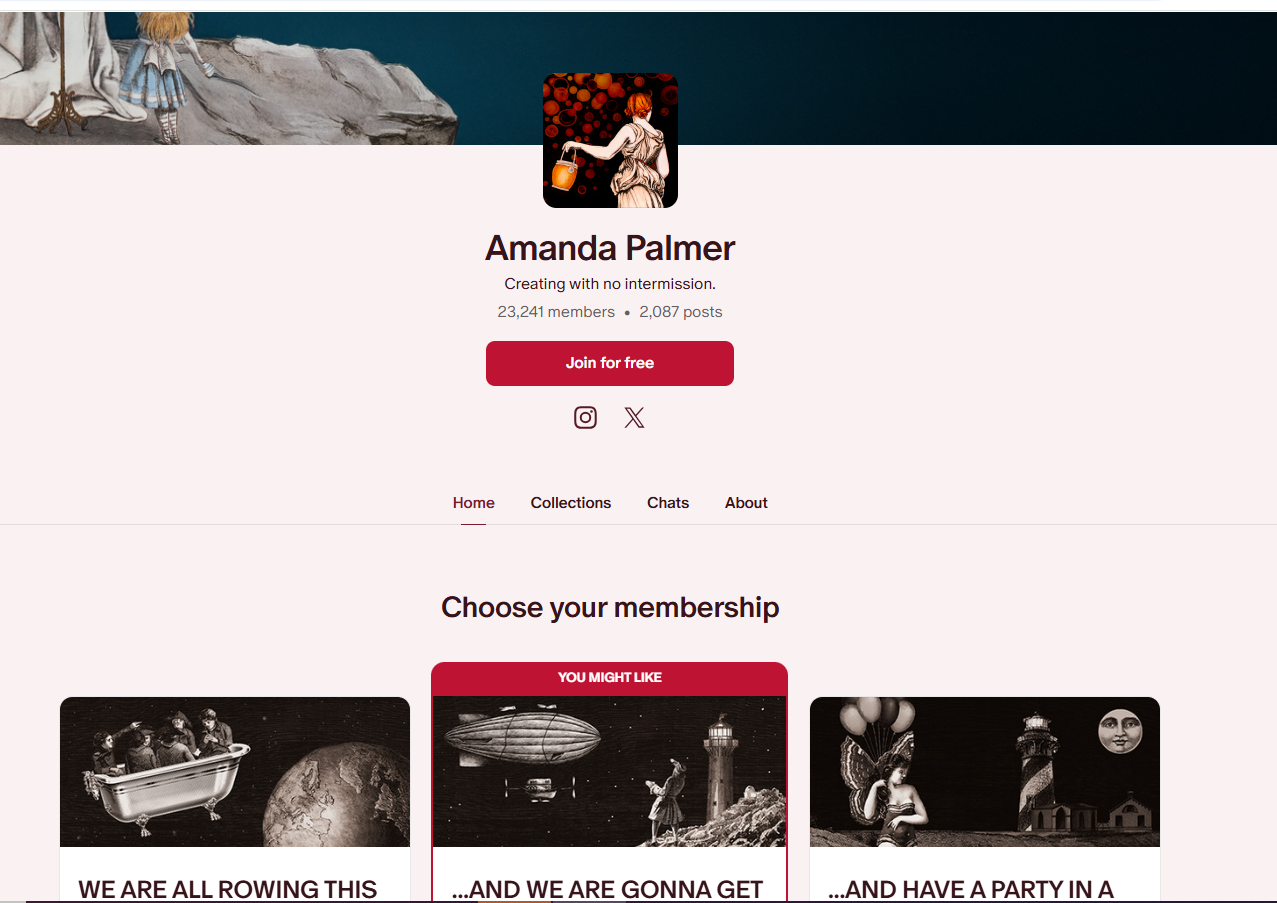
Fortnite Community
One of the largest gaming communities online, Fortnite, has over 12.6 million members. It is a collective group of game enthusiasts for all things Fortnite! Members can connect virtually on anything, including game updates, LFG, tournaments, and collaborations.
In addition to the official community, there are dedicated channels for Zero Build LFG, Battle Royale, tips and tricks, etc.
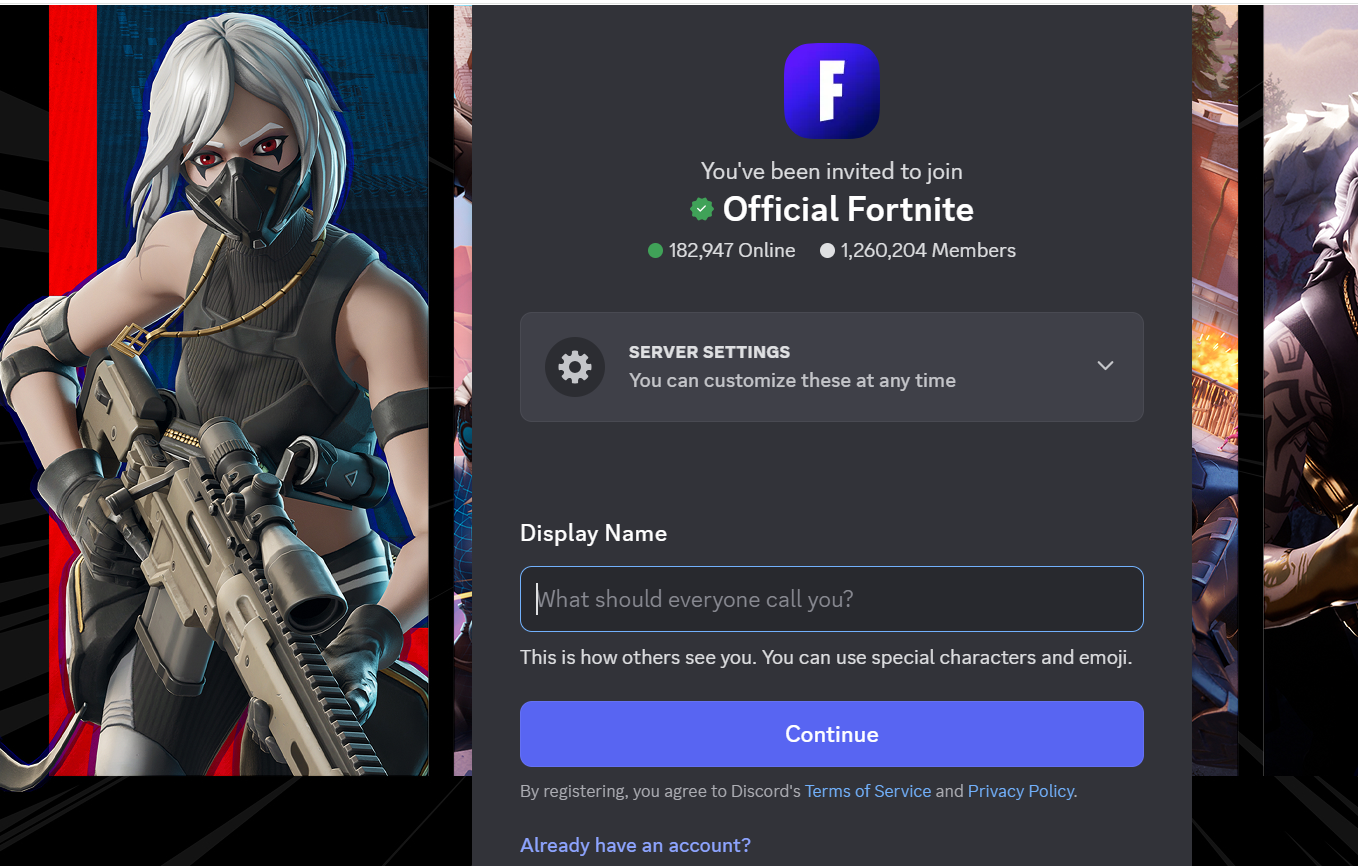
Final Thoughts
Getting a new community off the ground is a rewarding endeavour! From defining the community’s purpose to rolling out promotions, there’s a lot of work!
We have covered strategies on how to build an online community. Ultimately, patience and the right community platform are all that matter!
So, do you have clear inspiration about your community? Fanso.io is powered by a built-in social community to share, engage, and entertain your audience! Whether it’s social login, Instagram-styled stories, or social newsfeed, it’s the perfect place to get started! Grow your brand with our 100% source code access and offer a tailored niche experience!
Have questions? Connect with our team to determine if Fanso is the right solution for your community!
FAQ-Related to How to Build an Online Community
1. How do I build my online community?
The steps to build an online community include:
- Find a clear purpose for building your community
- Create your ideal member persona
- Determine the right structure for your online community
- Choose the profitable monetization streams
- Pick the right platform to start your community
- Set up your community
- Create welcome message & onboarding content
- Invite members to your community
- Promote your community
- Grow your community
2. Which are the popular platforms for creating an online community?
Facebook Groups, Discord, Reddit, social media platforms, and your website are some platforms for building your online community.
3. How can I attract members to join my online community?
Here are a few ways to attract members to your online community:
- Define a clear purpose and tailored niche for your audience
- Create quality content, host events, and exclusive experiences
- Promote your community on social media, emails, blog posts, and podcasts
- Offer early bird discounts, exclusive incentives, and other benefits to members
- Collaborate with niche influencers to increase your visibility
- Create an attractive referral program to reward successful referrals
4. What are the success metrics to measure your online community?
Engagement, retention rate, active members, and content impressions are some of the success metrics for your online community.

